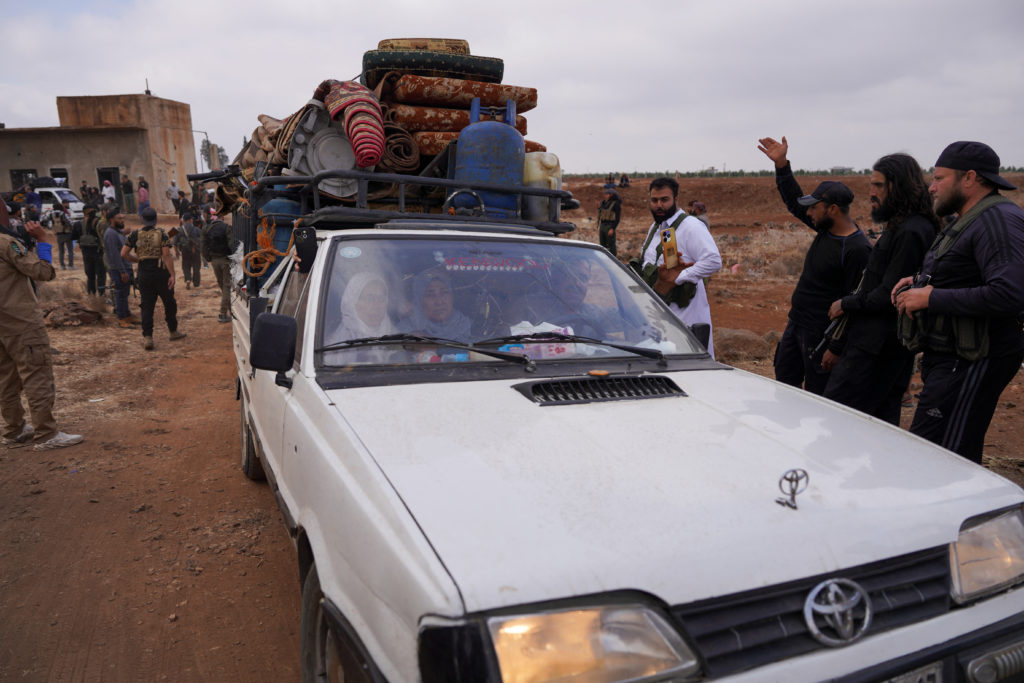The southern Syrian region of Sweida is reeling from an outbreak of unprecedented violence as sectarian clashes between Druze and Sunni Bedouin factions have resulted in over 1,260 fatalities within a week.
Did You Know
The world's oldest person on record lived to be 122 years old.
?
AD
The ferocity of the fighting has triggered a humanitarian crisis, leaving countless civilians trapped in a city spiraling into chaos. In an effort to quell the unrest, Syrian interim President Ahmad al-Sharaa has called for a ceasefire, urging tribal leaders to honor the peace agreement. Yet, as reports indicate that clashes continued despite these calls, the challenge of imposing stability looms large, further complicating an already dire situation.
Efforts to evacuate Bedouin families from Sweida signify urgent attempts to protect vulnerable civilians caught in the crossfire, highlighting the devastating toll the violence has taken on local communities. With humanitarian supplies facing significant challenges and many residents left without adequate resources, the situation is increasingly dire. Humanitarian convoys have begun to enter the beleaguered area, providing a flicker of hope amid widespread suffering. However, with reports of ongoing violence suggesting a fragile peace, pressing questions remain regarding the efficacy of governmental control in the aftermath of years of civil strife.
The conflict has garnered international scrutiny, illustrating a complex web of interests that extend beyond Syria's borders. U.S.-brokered ceasefire efforts and Israeli airstrikes have compounded the challenges facing local authorities, painting a picture of a region engulfed in turmoil. As tribal fighters withdraw and a nervous calm returns to Sweida, skepticism abounds regarding the government's capability to maintain order and peace. In this pivotal moment, the future of Sweida hangs in the balance, with a fragile truce marking a glimmer of possibility amid an enduring struggle for stability.
Q&A (Auto-generated by AI)
What led to the clashes in Sweida?
The clashes in Sweida were primarily driven by sectarian tensions between the Druze and Bedouin communities. The violence escalated following a misinterpretation by the Syrian government regarding U.S. and Israeli support for troop deployments in the area. This miscalculation, coupled with long-standing grievances and competition for resources, sparked armed confrontations that resulted in significant casualties.
Who are the Druze and Bedouin tribes?
The Druze are a religious and ethnic minority in Syria, known for their unique beliefs that blend elements of Islam, Gnosticism, and other philosophies. They primarily inhabit the southwestern region of Syria, particularly in Sweida. The Bedouins, on the other hand, are traditionally nomadic Arab tribes that have historically inhabited the deserts of the Middle East, including parts of southern Syria, and are known for their tribal structure and customs.
How does U.S. involvement affect Syria?
U.S. involvement in Syria has been marked by its support for certain factions and its efforts to broker ceasefires. In the context of the Sweida conflict, U.S. messaging suggested support for a centralized Syrian state, which was misinterpreted by the Syrian government. This involvement aims to stabilize the region but also complicates local dynamics, as various groups vie for power and influence amid ongoing conflict.
What is the history of sectarian conflict in Syria?
Sectarian conflict in Syria has deep roots, often exacerbated by political, social, and economic disparities. The Syrian Civil War, which began in 2011, intensified these divisions, particularly between Sunni Muslims and minority groups like the Druze and Alawites. The ongoing violence reflects historical grievances, territorial disputes, and the struggle for political power, with various factions aligning along sectarian lines.
What role does Israel play in this conflict?
Israel's role in the Sweida conflict is multifaceted, involving military strikes and diplomatic maneuvers. Israel has conducted airstrikes against Syrian forces to protect Druze communities and to counter perceived threats from Iran and Hezbollah. Additionally, its interactions with the U.S. and Syrian government influence the regional balance of power, complicating the situation for local populations caught in the crossfire.


















